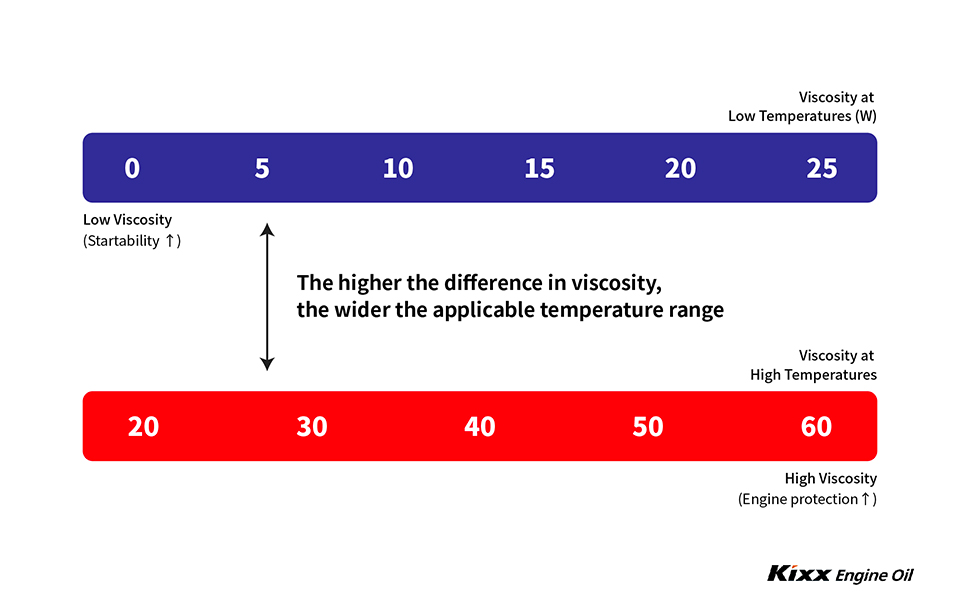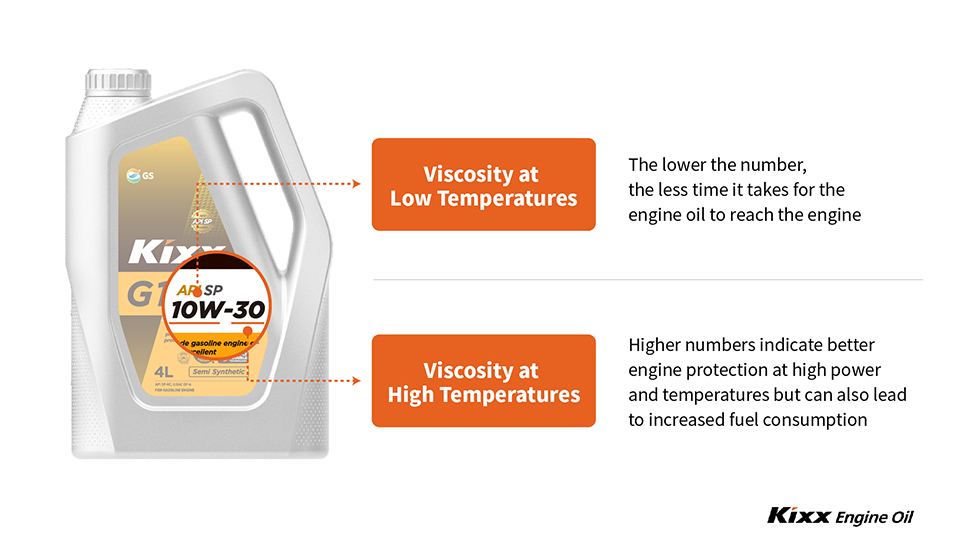The Royal Purple Motor Oil, priced at $33.78, is an example of an engine oil with a high viscosity index. With the understanding that a higher viscosity index is desirable in engine oils, choosing the right motor oil can significantly improve engine performance and efficiency.
Engine oils with high viscosity indices provide better performance and protection for the engine, particularly at high temperatures and loads. It helps to maintain film strength and oil pressure, leading to smoother engine operation and reduced wear. By selecting motor oils with high viscosity indices, you can ensure better lubrication for your engine and prolong its lifespan.
Therefore, understanding and choosing the best engine oil with a high viscosity index is crucial for optimal engine performance and longevity.

Credit: news.kixxoil.com
Understanding Viscosity Index
When selecting the best engine oil for your vehicle, understanding the concept of viscosity index is crucial. The viscosity index of engine oil determines its ability to maintain optimal viscosity across a range of temperatures. This directly influences the performance and protection of your engine, making it an essential factor to consider when choosing the right engine oil for your vehicle.
Definition And Significance
The viscosity index of engine oil is a measure of how its viscosity changes with temperature. Viscosity, or thickness, determines the oil’s ability to flow and lubricate engine components. A higher viscosity index indicates that the oil’s viscosity changes less with temperature variations, providing improved stability across a wide temperature range. This is crucial for maintaining consistent engine protection and performance.
Impact On Engine Performance
The viscosity index of engine oil directly impacts the engine’s performance and longevity. High viscosity index oils maintain their thickness even at high temperatures, ensuring proper lubrication and protection under extreme conditions. This results in reduced friction, enhanced fuel efficiency, and extended engine life. On the other hand, low viscosity index oils may lead to inadequate lubrication and increased wear, negatively affecting engine performance and durability.
Credit: www.quora.com
Factors Affecting Viscosity
Factors affecting viscosity are temperature, pressure, and the type of oil used. When it comes to choosing the best engine oil with a high viscosity index, it is important to consider the operating conditions and requirements of the engine. This will ensure optimal lubrication and protection for your engine.
Factors Affecting Viscosity When it comes to choosing the best engine oil with a high viscosity index, it’s crucial to understand the factors that affect viscosity. Viscosity refers to the oil’s resistance to flow and is an essential property for lubricating engines effectively. Several factors play a role in determining the viscosity of engine oil. In this section, we’ll discuss two significant factors: temperature variations and the role of additives in viscosity.
Temperature Variations
Temperature changes can significantly impact the viscosity of engine oil. As temperatures rise, oil tends to thin out, which means it becomes less viscous. Conversely, when temperatures drop, oil thickens and becomes more viscous. This relationship between temperature and viscosity is critical because it affects the oil’s ability to flow and lubricate engine components properly. Dealing with temperature variations is particularly important for engines that operate in extreme conditions. If the engine regularly experiences high temperatures, oil with a higher viscosity index is recommended. It ensures that the oil retains its viscosity and film strength even under extreme heat, providing optimal protection to the engine. On the other hand, in colder climates, oils with low-temperature viscosity ratings are preferred to ensure efficient cold starts and prevent damage to engine components.
Role Of Additives in Viscosity
Additives play a crucial role in determining the viscosity of engine oil. These additives are specially formulated chemical compounds that are blended with base oil to enhance the oil’s overall performance. Some additives are specifically designed to improve the viscosity characteristics of the oil. Viscosity index improvers, for example, are additives that help maintain consistent viscosity across a range of temperatures. These additives prevent drastic changes in viscosity, ensuring that the oil retains its lubricating properties even in varying temperature conditions. Other additives, such as detergents and dispersants, help keep the engine clean by preventing deposits and sludge formation. This ensures optimal oil flow and reduces the risk of viscosity breakdown due to contaminants. In conclusion, understanding the factors affecting viscosity is crucial in selecting the best engine oil with a high viscosity index. Temperature variations and the role of additives both play a significant role in determining the oil’s viscosity characteristics. By choosing the right oil that can withstand temperature extremes and contains appropriate viscosity-improving additives, you can ensure proper engine lubrication and extended engine life.
Exploring High Viscosity Engine Oils
Benefits Of High Viscosity Oils
In today’s automotive industry, high viscosity engine oils are gaining increasing popularity due to their superior performance and protective properties. These oils offer a myriad of benefits that make them a top choice for engine lubrication.
- Improved film strength, ensuring enhanced protection for engine components even under extreme pressure and high temperatures.
- Reduced engine wear and tear, leading to prolonged engine life and minimizing maintenance costs.
- Enhanced thermal stability, allowing the oil to maintain its viscosity and protective properties even in demanding operating conditions.
- Optimized fuel efficiency, contributing to better overall engine performance and reduced fuel consumption.
Industry-leading Brands
When it comes to high-viscosity engine oils, several industry-leading brands have established themselves as frontrunners in producing top-quality lubricants that cater to the specific needs of high-performance engines.
| Brand | Average Price |
|---|---|
| Valvoline Global Operations | $36.99 |
| AirplaneOil.com | $100.00 |
| AMSOIL | $19.39 |
| Royal Purple | $33.78 |
| Castrol | $28.97 |
When selecting a high viscosity engine oil, it’s essential to consider reputable brands that have a proven track record of delivering exceptional lubrication solutions for a wide range of engine types and operating conditions.
Comparing High And Low Viscosity Index Oils
When it comes to choosing the right engine oil, one of the factors to consider is the viscosity index. The viscosity index of an oil determines its ability to resist changes in viscosity with temperature fluctuations. In simpler terms, it indicates how well the oil can maintain its thickness under different operating conditions. This is particularly important in engines where consistent lubrication is crucial for optimal performance and longevity.
Performance Differences
High and low-viscosity index oils have distinct performance differences that make them suitable for specific engine types and operating conditions.
- High Viscosity Index Oils:
- High viscosity index oils have a more stable viscosity range across a wider temperature range.
- These oils are less affected by temperature changes, ensuring consistent lubrication performance in extreme hot or cold conditions.
- They provide better wear protection at high temperatures and heavy loads, making them suitable for high-performance engines and demanding applications.
- Low Viscosity Index Oils:
- Low viscosity index oils experience greater changes in viscosity with temperature fluctuations.
- These oils are more suitable for engines that operate within moderate temperature ranges and do not require extreme temperature stability.
- They may offer better fuel economy due to reduced internal friction in the engine.
Suitability For Various Engines
The suitability of high and low viscosity index oils for different engines depends on factors such as the engine design, operating conditions, and manufacturer recommendations. Here’s a breakdown of their suitability:
| Engine Type | Suitability |
|---|---|
| High-Performance Engines | High viscosity index oils are generally recommended for high-performance engines as they offer superior wear protection under extreme conditions. |
| Standard Passenger Vehicles | Low viscosity index oils are commonly used in standard passenger vehicles that operate within moderate temperature ranges and do not require specialized lubrication. |
| Heavy-Duty and Commercial Vehicles | High-viscosity index oils are preferred for heavy-duty and commercial vehicles due to their ability to withstand high temperatures and heavy loads. |
It’s important to consult your vehicle’s manufacturer’s recommendations or seek professional advice to determine the most suitable viscosity index oil for your specific engine and operating conditions. Choosing the right engine oil will ensure efficient lubrication, enhance engine performance, and prolong the life of your engine.
Choosing The Best Engine Oil
When it comes to selecting the right engine oil for your vehicle, considering factors such as viscosity index becomes crucial for optimal performance. Finding the best engine oil with a high viscosity index can enhance engine protection and efficiency. Let’s dive into the key aspects to keep in mind when choosing the ideal engine oil.
Matching Viscosity To Engine Needs
Understanding the viscosity index of motor oils is essential to ensure compatibility with your engine requirements. Thin oils offer lower viscosity, ideal for improved engine start-up during cold weather. On the other hand, thicker oils with higher viscosity excel in maintaining film strength and oil pressure at elevated temperatures and loads, reducing friction and enhancing overall engine performance.
Considerations For High Mileage Vehicles
For high mileage vehicles, opting for engine oils specifically designed for such conditions is beneficial. Products like Royal Purple Motor Oil and Valvoline Restore & Protect Full Synthetic Motor Oil offer excellent protection and performance at competitive prices, ensuring longevity and efficiency for vehicles with extensive mileage.
| Product | Price |
|---|---|
| Royal Purple Motor Oil | $33.78 |
| Valvoline Restore & Protect Full Synthetic Motor Oil | $10.26 |
- Thin oils with low viscosity are ideal for cold weather starts.
- Thicker oils with high viscosity maintain film strength at high temperatures.
- Consider engine oil viscosity based on your vehicle’s requirements.
- For high mileage vehicles, opt for specialized engine oils for better performance.
https://www.valvolineglobal.com
When looking to optimize your engine’s performance, choosing the best engine oil with a high viscosity index is paramount. Take into account the specific needs of your vehicle and select an oil that aligns with those requirements for enhanced engine protection and efficiency.
Maximizing Oil Efficiency
Maximizing Oil Efficiency:
Proper Maintenance Practices
Regular oil changes and inspections.
- Check oil levels and quality.
- Follow manufacturer’s guidelines.
Monitoring Oil Performance
Keep track of oil consumption and condition.
- Use oil analysis tests.
- Look for signs of contamination or degradation.

Credit: news.kixxoil.com
Frequently Asked Questions
Which Oil Has The Highest Viscosity Index?
The oil with the highest viscosity index is synthetic oil. It has better flow at low temperatures and maintains thickness at high temperatures.
Is Higher Viscosity Engine Oil Better?
Higher viscosity engine oil provides better film strength and oil pressure at high temperatures and loads.
What Is The Best Viscosity Oil?
The best viscosity oil varies by engine type and manufacturer specifications. Consult your auto manual for recommendations.
Which Oil Will Have Maximum Viscosity?
The oil with the maximum viscosity is the one that has a higher viscosity index. Higher viscosity oils maintain film strength and oil pressure at high temperatures and loads.
Conclusion
As you can see, choosing an engine oil with a high viscosity index is crucial for maintaining optimal engine performance. From its ability to maintain film strength and oil pressure at high temperatures to reducing friction in engines, the importance of oil viscosity cannot be overstated.
By understanding the significance of viscosity index, you can ensure the longevity and durability of your engine.

